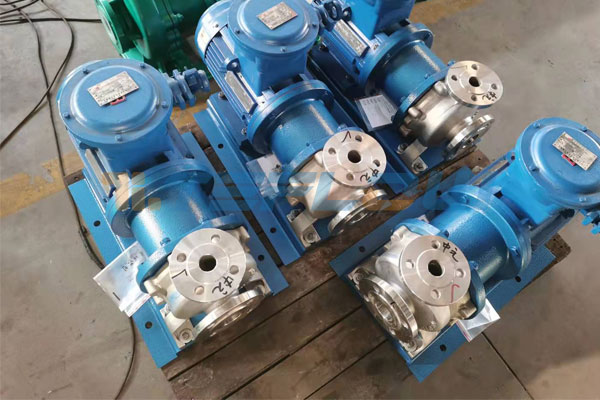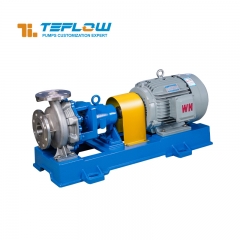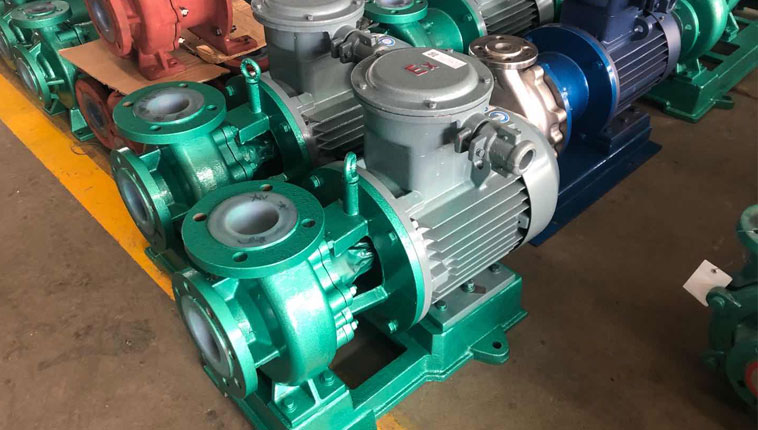Organic solvents are extensively employed in various sectors such as chemicals, pharmaceuticals, and coatings for processes like synthesis, dissolution, and processing. When it comes to transporting organic solvents, choosing the right pump is paramount for ensuring safe and efficient fluid conveyance. This article delves into the specific requirements of conveying organic solvents, highlights suitable types of pumps, and focuses on key considerations in pump selection. Its aim is to provide valuable guidance for selecting the appropriate pumps for organic solvent conveyance.
Part 1: Unique Demands of Conveying Organic Solvents
Organic solvents possess characteristics such as flammability, significant volatility, and corrosiveness, necessitating a high degree of safety and reliability in their conveyance. Before selecting a suitable pump, the following factors must be taken into account:
Corrosion Resistance: Organic solvents exhibit diverse chemical properties, requiring pump materials to be corrosion-resistant to prevent pump damage.
Static Electricity Safety: Highly volatile organic solvents can generate static electricity during fluid movement, necessitating anti-static pump designs to reduce safety risks.
Sealing Performance: Given the volatility of organic solvents, effective sealing is crucial to prevent leakage.
Part 2: Appropriate Types of Pumps
Based on the properties of organic solvents, the following pump types are commonly used for their conveyance:
Centrifugal Pumps: Suitable for conveying low-viscosity organic solvents, characterized by high efficiency and stability.
Diaphragm Pumps: Employing a diaphragm structure, these pumps effectively isolate organic solvents from pump contact, ensuring safety.
Screw Pumps: Ideal for conveying high-viscosity organic solvents, capable of stable transport of dense fluids.
Magnetic Drive Pumps: Offering leak-free and seal-less operation, these pumps are an ideal choice for handling organic solvents, especially those that are highly volatile.

Part 3: Key Factors in Pump Selection
When selecting the appropriate pump, the following critical factors must be comprehensively considered:
Medium Properties: Understand the chemical characteristics, corrosiveness, and volatility of organic solvents to choose corrosion-resistant materials and minimize pump wear.
Flow Rate and Head: Determine the required flow rate and head based on conveyance needs to ensure pump suitability.
Pump Materials: Choose pump materials that can withstand chemical corrosion based on the properties of the medium.
Safety: Consider anti-static design, leak prevention measures, and other safety precautions to ensure the pump's secure operation.
Selecting the right pump is paramount in the conveyance of organic solvents. Different types of organic solvents have varying pump requirements, encompassing corrosion resistance, static electricity safety, and sealing performance. By comprehensively considering factors like medium properties, flow rate, head, pump materials, and safety, choosing the appropriate pump ensures the safe and efficient conveyance of organic solvents, providing robust support for industrial processes. Whether in the realm of chemicals, pharmaceuticals, or other fields, opting for the right pump guarantees crucial support for process stability and efficiency.





 +86 18130251359
+86 18130251359 teflowpumps@tlpumps.com
teflowpumps@tlpumps.com











 +86+0563-5093318
+86+0563-5093318
